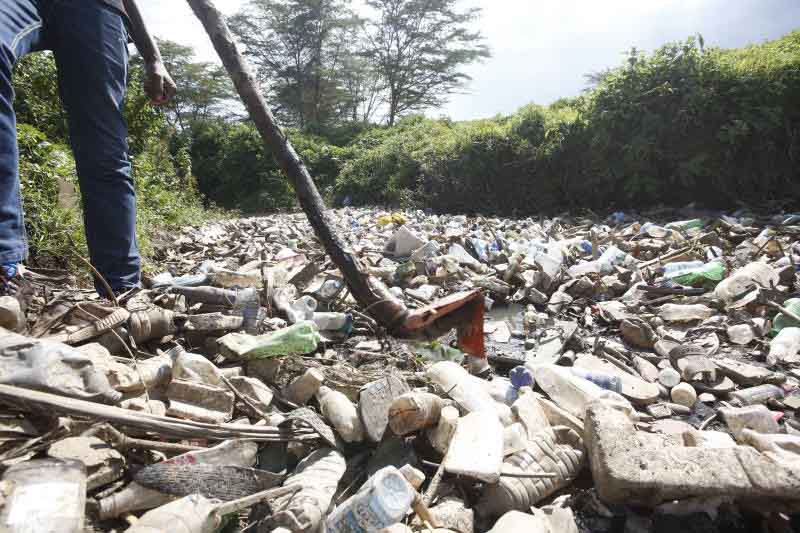×
The Standard e-Paper
Fearless, Trusted News

Every morning, Francisca Mwende and two other members of New Genesis, a community-based organisation in Mukuru in Nairobi County, set out into the expansive settlement in search of polythene bags.
In a day, they collect about 120 kilogrammes from dustbins, landfills and rivers, and delivers it to Vintz Plastics, a local recycler, who pays them for every kilogramme collected. This has become a source of livelihood for New Genesis, enabling them to meet their basic needs.